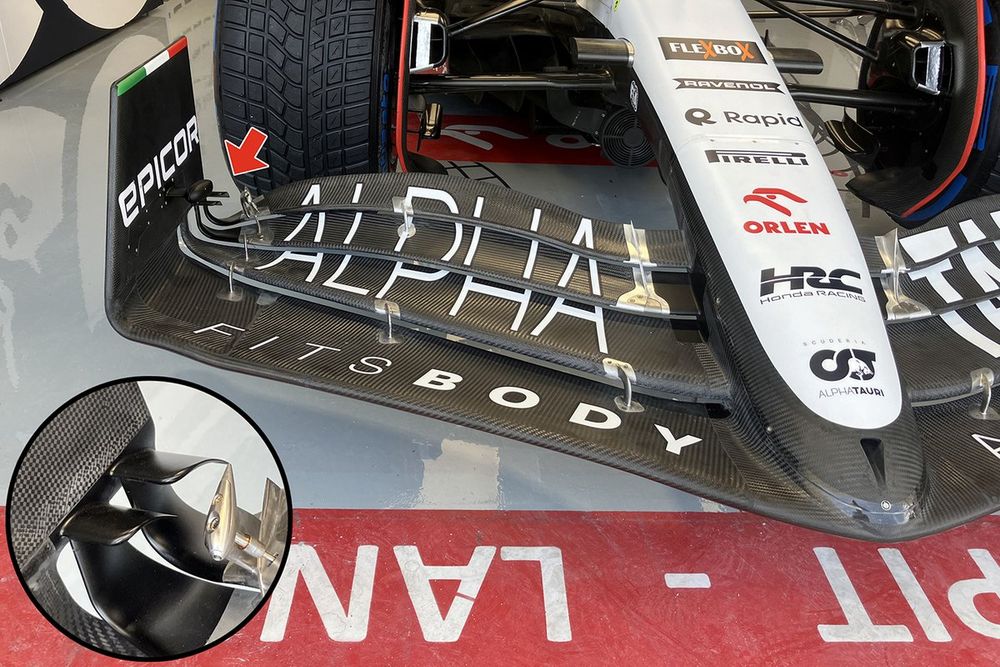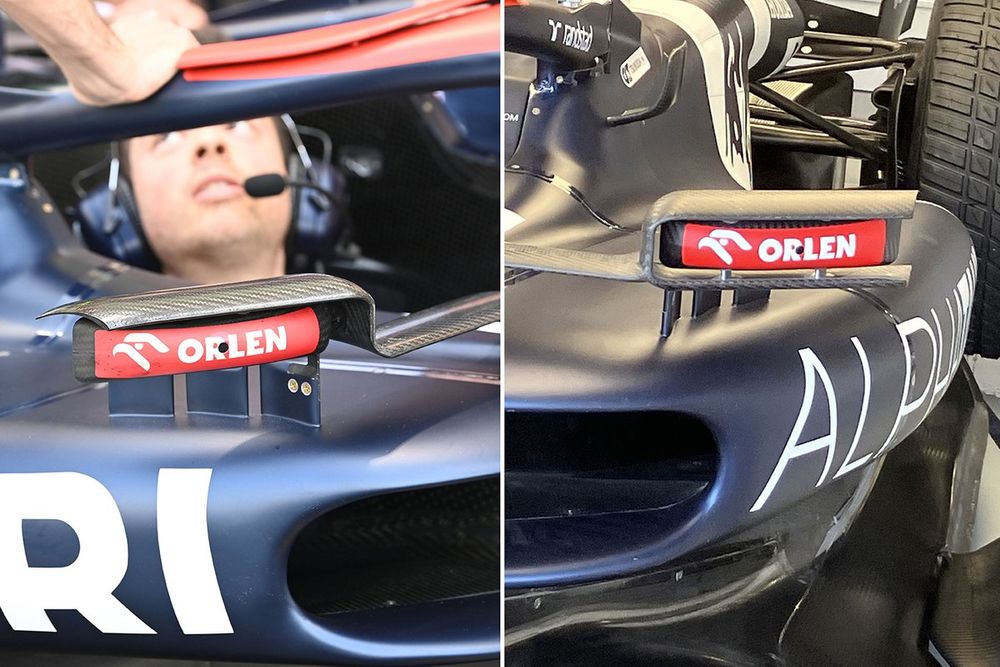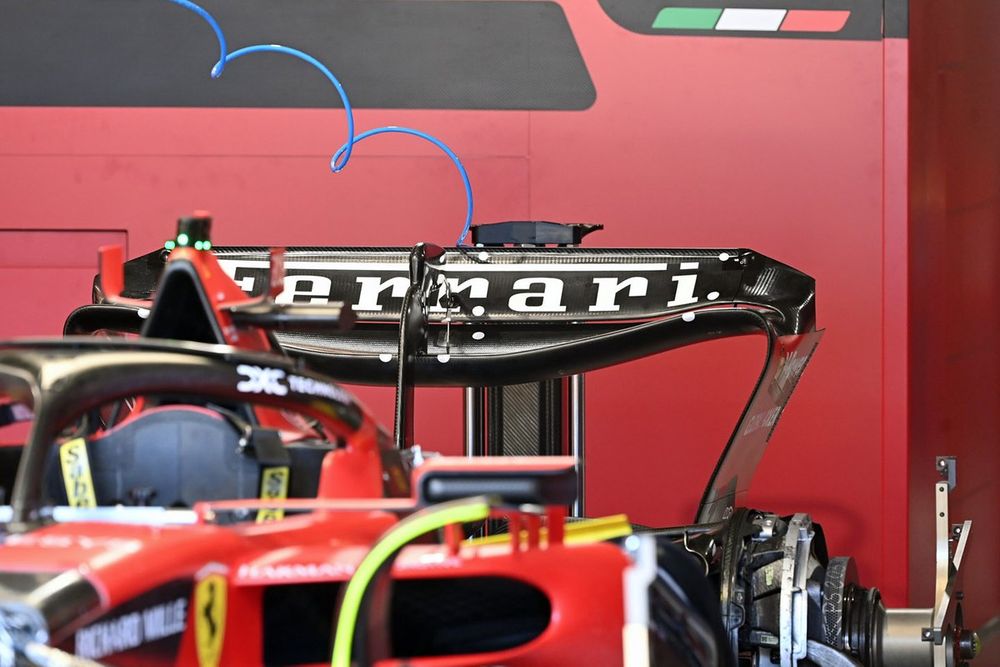When it comes to updates pertaining to the floor, there’s always aspects of a redesign that we’re unable to quantify, given that the majority of the changes will be made to parts of the floor we cannot see, such as the underfloor.
However, we do know, courtesy of the car presentation submission document that the teams must complete prior to an event, that Ferrari has made changes to the front and mid sections of the floor, while also altering the geometry of the diffuser.
It also appears that the edge of the floor has been optimised as part of the redesign, with the upwardly rolled scroll section and the section that tapers toward the rear tyre both subtly different in Miami.
Ferrari SF-23 technical detail
Photo by: Uncredited
Ferrari has also returned to its rear wing solution which features a single, centrally-mounted pillar and a sawn-off top section, having utilised a lower downforce configuration in Azerbaijan.
AlphaTauri also has a few updates to the AT04 this weekend, with revised profiles being utilised in the outer section of the front wing, which have been designed to work in tandem with the two new downwash winglets that are now mounted on the endplate just above them.
This is a similar solution to the one sported on its sister team’s RB19, the Mercedes W14 and Haas VF-23. The winglets tidy up the airflow’s passage around the front tyre, improving performance downstream as a consequence.

AlphaTauri AT04 front wing
Photo by: Uncredited
There’s also a change to the mirror assembly (below), with a similar arrangement to Aston Martin deployed, whereby the mirror housing is flanked both top and bottom by a slat, rather than just above housing.

AlphaTauri AT04 mirror comparison
Photo by: Uncredited
According to the team this helps improve the behaviour of the airflow around the assembly and improves both the outwash it generates to lessen the impact posed by the turbulence created by the front tyre and reduces the size of the wake generated by the mirror glass by generating local upwash behind it.
This should result in an uptick in local performance for the sidepod surfaces and help to improve performance downstream too.
Click Here to Read the Full Original Article at Motorsport.com – Formula 1 – Stories…

